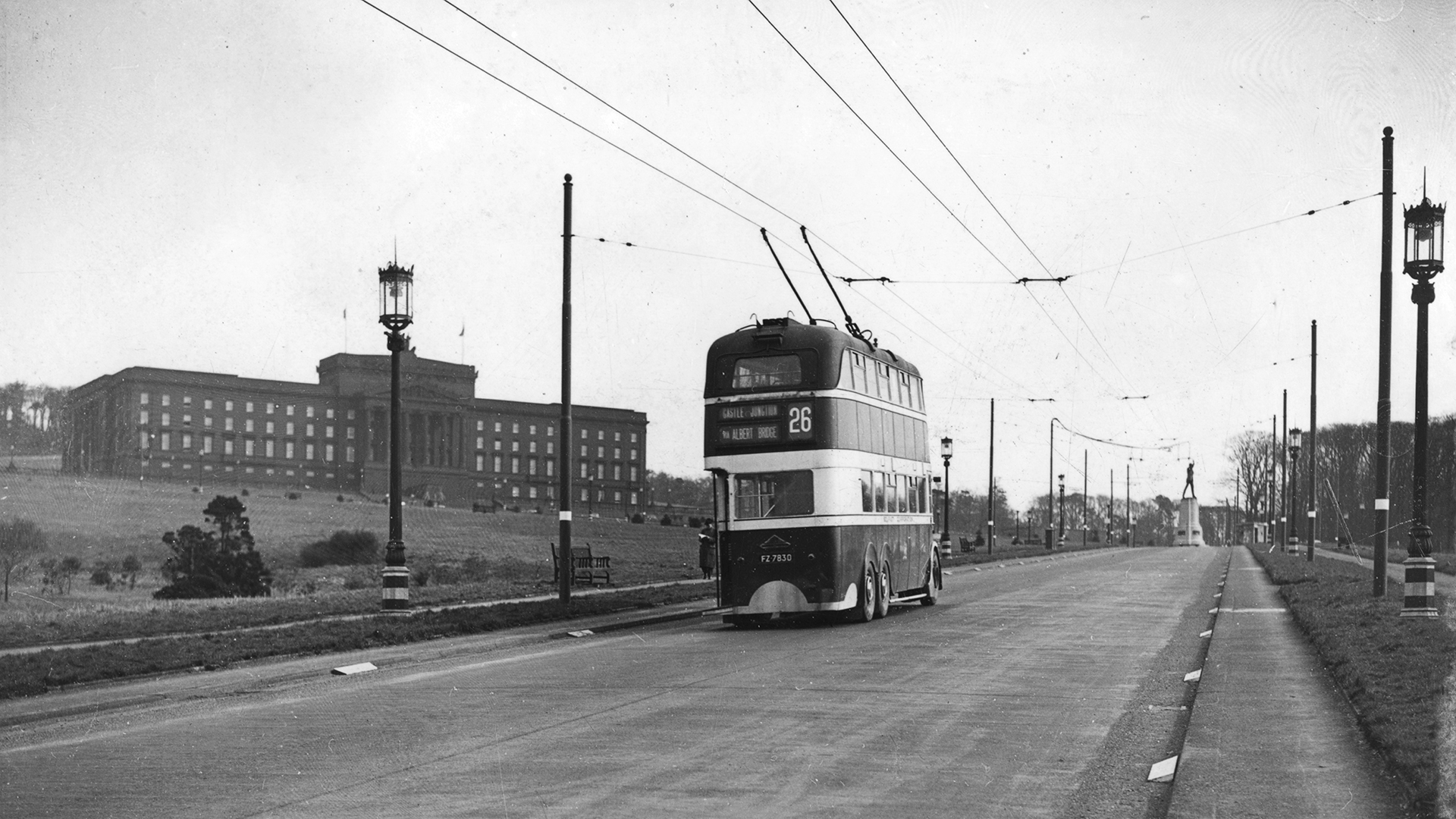Sir James Craig (1st Viscount Craigavon) served as Prime Minister of Northern Ireland. He held the role for nineteen years from 26th January 1921 to his death in 1940. He was the first Prime Minister of the country as well as the leader of the Ulster Unionist Party.
Born on 8th January 1871, he was the son of James Craig Senior and Eleanor Gilmore Browne of Craigavon House, The Hill, Sydenham, Belfast, Co. Antrim. His father was a millionaire whiskey distiller having worked up through the ranks of Dunville Whiskey. His mother was a daughter of Robert Browne, a wealthy man with property in Belfast and farmland in Lisburn, Co. Antrim.
He attended Merchiston Castle School, Edinburgh, Scotland. After school, he entered a career as a stockbroker, opening a firm in Belfast.
The Boer Wars
On 17th January 1900, Craig enlisted in 3rd Militia Regiment, Royal Irish Rifles. He served as a Lieutenant in 13th Battalion Imperial Yeomanry in the Second Boer War from 24th February 1900. He left Liverpool for South Africa on board the SS Cymric in March 1900.
After arriving at the front, Craig became a prisoner of war in May 1900. A popular officer, he marched to the prison camp with his men rather than ride to another camp 200 miles away with other officers. He was released by the Boers as he had a perforated eardrum. He became deputy assistant director of the Imperial Military Railways. By June 1901, he was ill with dysentery and returned home. By the time he regained his health, the war was over. Despite missing the end of the war, he received a promotion to Captain on 20th September 1902.
On returning to Ireland, he received £100,000 from his father’s will. He established himself as a politician.
- 1906 – 1908 – MP of British Parliament for East Down.
- 1918 – 1921 – MP of British Parliament for Mid Down.
- 1919 – 1920 – Parliamentary Secretary to the Minister for Pensions.
- 1920 – 1921 – Parliamentary Secretary to the Admiralty.
On 22nd March 1905, James Craig married Cecil Mary Nowell Dering Tupper. Born in England, she was the daughter of Sir Daniel Tupper, assistant controller of the Lord Chamberlain’s department of the King’s household. She was also a fourth cousin of Elizabeth Angela Marguerite Bowes-Lyon, the future Queen Mother. Craig and his wife had twin sons and a daughter.
Before the outbreak of World War One, James Craig rallied support in opposition to Irish Home Role in Ulster. He organised the Ulster Volunteer Force who would go on to form the nucleus of the 36th (Ulster) Division during the war.
On 28th September 1912, James Craig became the second man to sign Ulster’s Solemn League and Covenant after Edward Carson. In 1921, Craig succeeded Edward Carson as leader of the Ulster Unionist Party.
Prime Minister of Northern Ireland
In the first Northern Ireland general election of 1921, he became a member of the Northern Ireland House of Commons representing Co. Down. On 7th June 1921, two weeks before the opening of parliament, the Lord Lieutenant of Ireland appointed Craig Prime Minister of Northern Ireland.
James Craig had become a baronet in 1918. He later became a member of the peerage, Viscount Craigavon of Stormont in 1927. Craig was a supporter of local industry and used the Anglo-Irish Agreement of 1938 to gain more armaments contracts for Belfast companies.
World War Two
His health declined throughout the 1930s and he took less involvement with everyday matters. His commitment to the Unionist cause remained strong. He called a general election in Northern Ireland in 1939 in response to Eamon de Valera’s new constitution for the Irish Free State in 1937.
At the arrival of war in 1939, James Craig was in poor health. A private memorandum from Sir Wilfred Spender in August 1938 reported that Craig was unable to work for more than an hour per day. He remained in office but decision making became erratic. Spender viewed the Northern Irish government as complacent and ineffective. Even in the early stages of the war, Lady Londonderry confided to Home Secretary Sir Samuel Hoare that Craig had gone “ga-ga”.
In April 1939 and May 1940, James Craig called for an introduction of conscription in Northern Ireland. Westminster refused, fearing a backlash from Nationalist communities. Craig had also called on Churchill to use Scottish and Welsh troops to invade Ireland, seize ports and install a Governor General in Dublin.
On 4th September 1939, James Craig stated Northern Ireland’s support in the British war effort. A speech in the House of Commons talked of “no slackening” in Northern Ireland’s loyalty. Access to the country’s resources and industries would be vital for Britain. It was not until June 1940 that Craig established a Ministry of Public Security under John MacDermott.
Death in Co. Down
On 29th October 1940, Craig delivered his final parliamentary speech. It was an anti-Nationalist put down of a motion in favour of a United Ireland. Several junior ministers had resigned that summer causing further strain between governments.
Less than a month later, Sir James Craig died at his home at Glencraig, Co. Down on 24th November 1940 aged 69 years old. He and his wife had listened to the 6 o’clock news and she left him smoking his pipe and listening to a detective story. When she returned later, she found the Prime Minister dead.
After his death, Governor of Northern Ireland Lord Abercorn asked John Miller Andrews to form a government as new Prime Minister.
James Craig’s grave is a tomb in the grounds of Stormont Castle, Belfast. In 1965, the government commemorated Craig with the naming of the new city of Craigavon, Co. Armagh.
